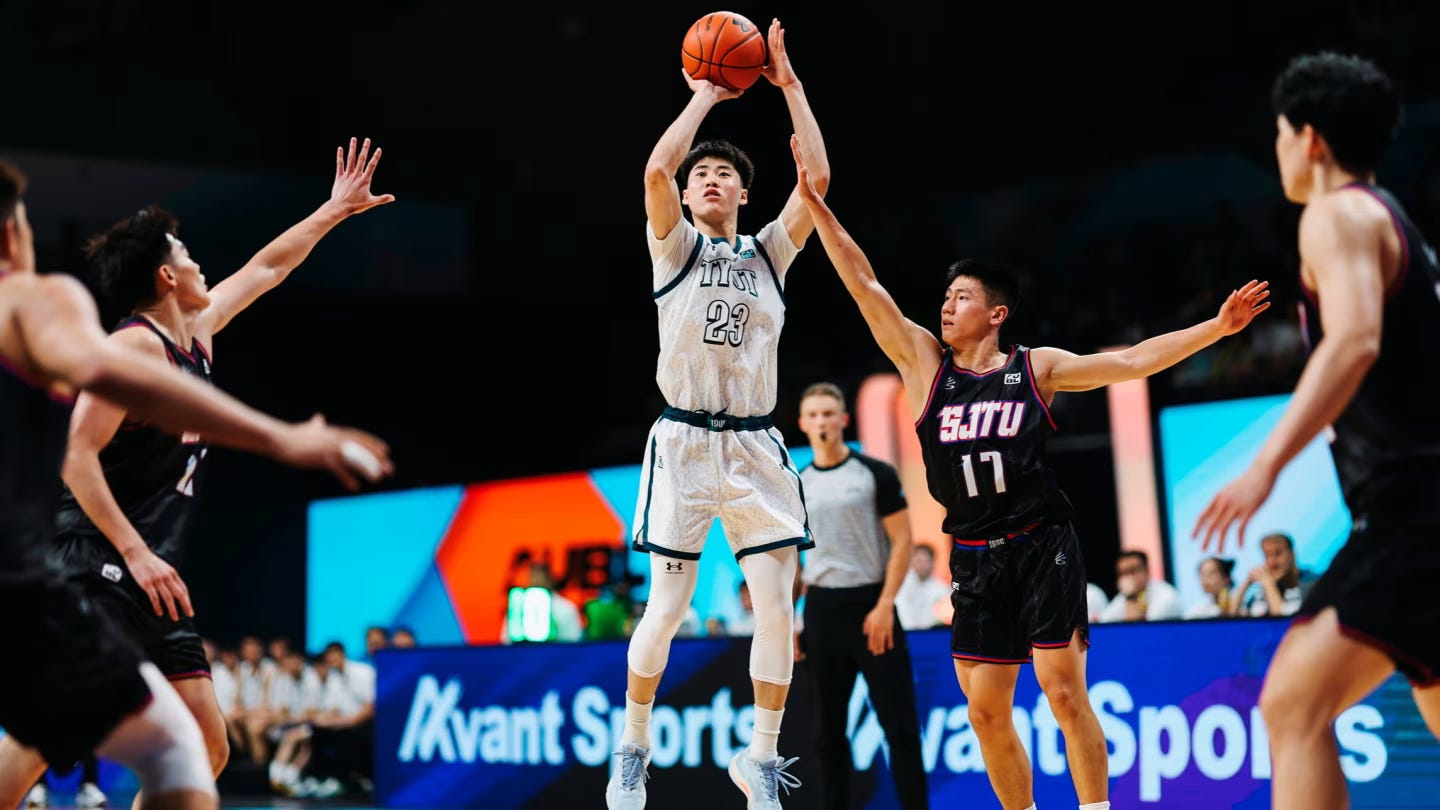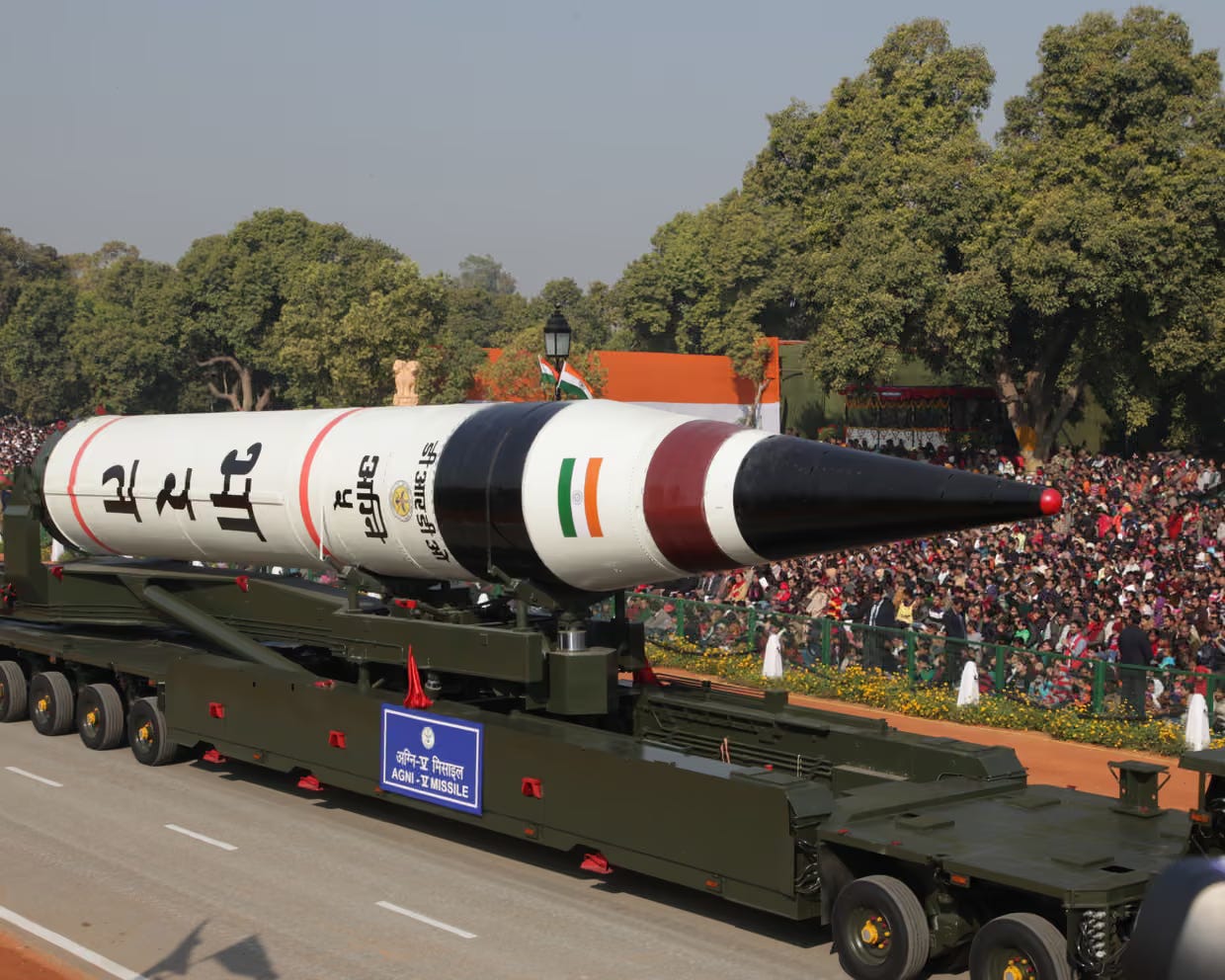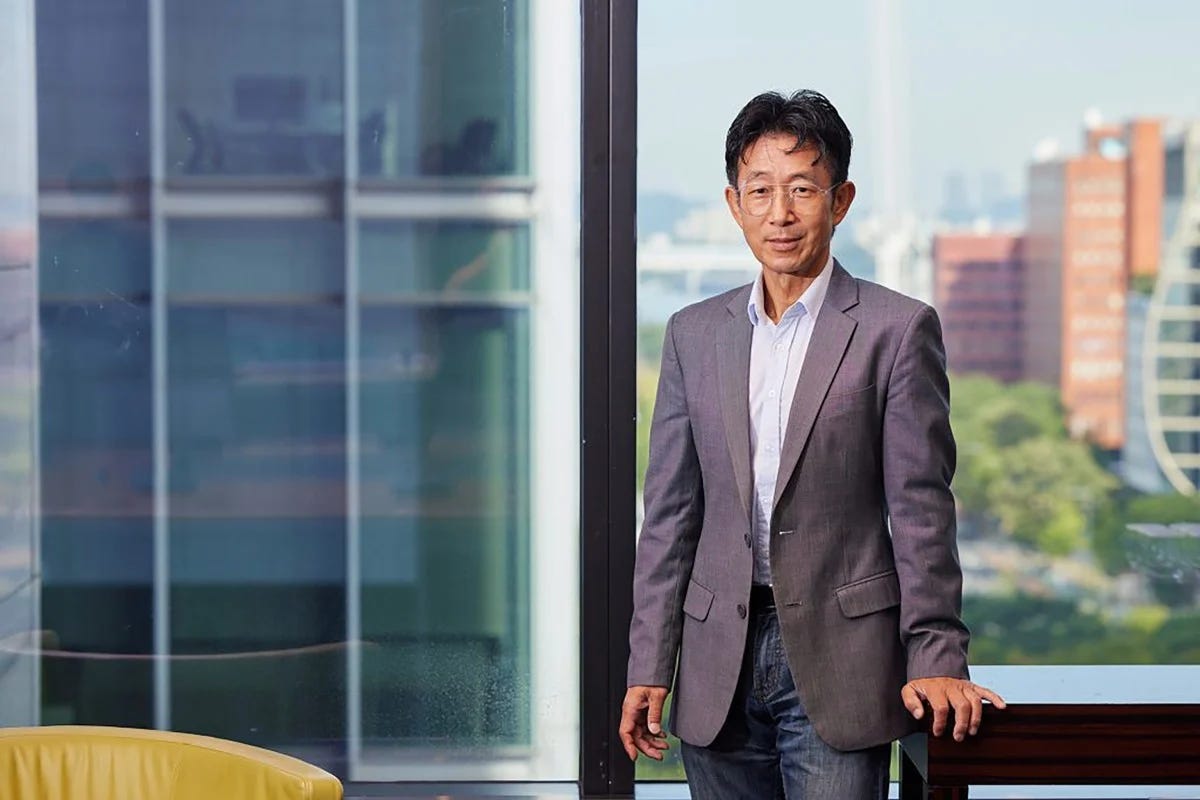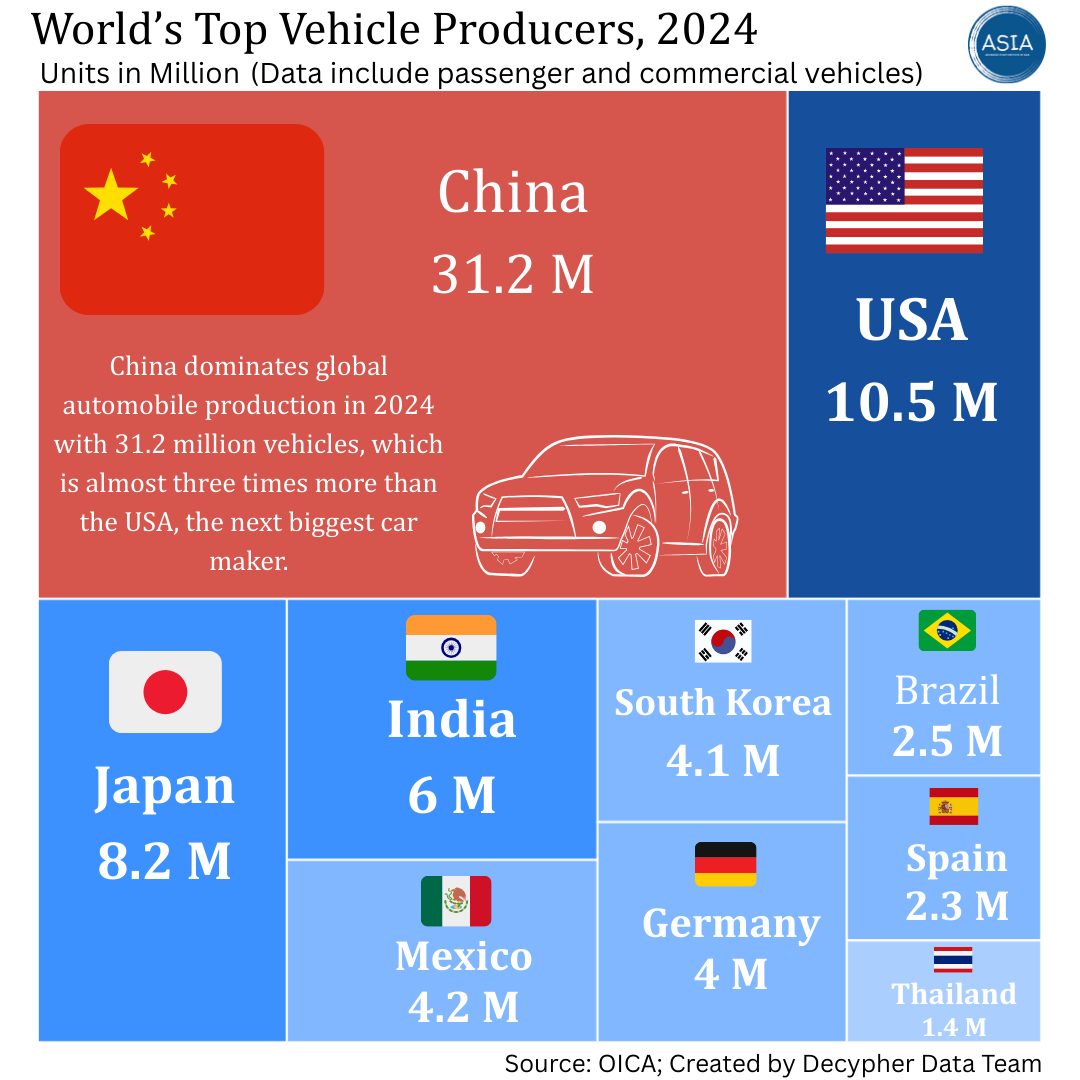China This Week: Economic Stimulus Falls Short, Xi Asserts Control in Tibet, China-Pakistan Reaffirm Strategic Ties
This week in China, we explore key shifts in its domestic and foreign policy landscape.
China Quote 🗩
“Any move that violates the purposes and principles of the UN Charter and a country’s sovereignty and security”.
Spokesperson Mao Ning, warning against Washington’s military build-up. China has thrown its support behind Nicolás Maduro in a standoff increasingly drawing in powers far beyond the Caribbean.
Economic Activity🏦
China’s Economy Faces Slowdown as Stimulus Falls Short
Financial Times reports that Beijing’s latest measures to boost growth are failing to reverse weakening confidence among consumers and businesses. Despite loan subsidies and targeted support, analysts warn the economy remains weighed down by high local government debt, a sluggish property sector, and falling exports. Economists argue that without stronger stimulus, China risks prolonged stagnation.
Shanghai stocks hit decade high
Bloomberg reports that the Shanghai Composite closed at 3,728, its highest since 2015, as small investors rotated out of bonds amid easing U.S.-China trade tensions. Turnover hit the second-highest on record, fuelled by abundant liquidity, hopes of economic stabilisation, and a surge in margin debt.
China stock bubble fears intensify
Bloomberg reports that analysts are increasingly convinced China’s stock market rally has entered bubble territory, with valuations surpassing levels seen before the 2007 crash. The debate shifted from if the bubble would burst to when, as concerns mounted over speculative trading and heavy use of margin financing.
China Approvals for IPOs Outside Mainland Slow to a Trickle
Nikkei Asia reports that China’s securities regulator has sharply slowed approvals for overseas listings, creating uncertainty for Hong Kong’s bourse despite a strong IPO pipeline. The China Securities Regulatory Commission (CSRC) controls which mainland firms can float shares abroad, and the slowdown risks dampening what has otherwise been a banner year for Hong Kong, which is vying to reclaim its position as the world’s top IPO hub amid U.S.–China tensions.
China Considering Yuan-Backed Stablecoins to Boost Global Currency Usage
Reuters reports that Beijing is weighing the introduction of yuan-backed stablecoins as part of a new internationalisation plan to be reviewed by the State Council this month. If approved, it would mark a major policy shift from China’s earlier ban on crypto trading and mining. Hong Kong and Shanghai are expected to fast-track implementation, with stablecoins seen as a tool to counter U.S. dollar dominance and expand yuan use in global trade.
Indian tycoons eye China’s tech as ties thaw
Bloomberg reports that Indian conglomerates led by Gautam Adani and Mukesh Ambani are exploring investments in China’s technology and clean energy sectors. The outreach reflects improving Sino-Indian business ties after years of border tensions, as India seeks to leverage China’s manufacturing strength while balancing strategic competition.
Boeing Eyes $37B Jet Deal with China After Years of Drought
Yahoo Finance reports that Boeing is nearing a potential sale of up to 500 jets to Chinese airlines—its largest deal with China in nearly a decade. The agreement, centred on the 737 Max, could be worth around $37 billion and mark Boeing’s first major Chinese order since 2017. The move comes as Washington and Beijing pursue a trade thaw, with a possible announcement timed around a Trump visit to China or the APEC summit. The deal would help Boeing regain ground lost to Airbus, which has secured far more orders in China amid years of strained US-China ties.
Nvidia CEO in Taipei as US Mulls New China Chip Sales
Reuters reports that Nvidia CEO Jensen Huang visited TSMC in Taipei amid intensifying US–China chip tensions. Huang confirmed Nvidia is in talks with Washington over a successor to the H20 chip, tentatively called the B30A, but stressed the decision rests with the US government. The trip comes as Nvidia has asked Foxconn, Amkor, and Samsung to halt H20-related work, with Beijing warning Chinese tech firms about security risks.
Record Solar Growth Keeps China’s CO₂ Falling in 2025
Carbon Brief reports that China’s CO₂ emissions fell 1% year-on-year in the first half of 2025, driven mainly by record solar capacity growth of 212GW. Solar generation alone matched the increase in electricity demand, while coal use in the power sector dropped 3.4%. Despite the clean-energy surge, China is still expected to miss multiple 2025 climate targets, including carbon intensity and limits on coal expansion. Analysts note that coal-to-chemicals emissions are rising rapidly, complicating progress toward the 2030 peak.
Inside China🐉
Zhou Ming, Top Engineer Behind Boeing 787 and Airbus A380, Returns to China
SCMP reports that Zhou Ming, a leading industrial software specialist who played a key role in designing the Boeing 787 and Airbus A380, has left US-based Altair to join China’s newly established Eastern Institute of Technology in Ningbo as dean of its engineering college. Zhou, elected this year to the US National Academy of Engineering, is tasked with building a world-class R&D team focused on engineering software and optimisation technologies to strengthen China’s high-end manufacturing competitiveness.
Microsoft AI scientist Cao Ting joins Tsinghua University
SCMP reports that leading AI researcher Cao Ting has left Microsoft Research Asia to join Tsinghua University. Her move comes amid US curbs on AI work in China and reflects a broader talent shift as Microsoft relocates staff abroad while Beijing’s domestic AI sector expands.
Alibaba’s Joe Tsai Backs New Asian College Basketball League in China

Financial Times reports that Alibaba co-founder and Brooklyn Nets owner Joe Tsai has launched the Asian University Basketball League (AUBL), a pan-Asian college competition modelled on the US “March Madness” tournament. The league kicked off in Hangzhou with 12 university teams from China, Korea, Japan, Taiwan, Mongolia, and Hong Kong, including Peking University and the University of Hong Kong. Backed by Tsai’s Blue Pool Capital, Alibaba funds, Gobi Partners, and supported by former NBA star Yao Ming, the AUBL aims to tap into China’s vast basketball fanbase. The games are streamed on platforms like Youku and Tencent, with sponsors including Under Armour and EV maker Zeekr.
China and the World🌏
Xi Reminds Tibet That Beijing Is in Charge
The Wall Street Journal reports that Xi Jinping made a rare visit to Lhasa, urging Tibetans to adopt more Mandarin and align Tibetan Buddhism with socialist values. His message emphasised Communist Party control and the push for “ethnic unity” as China marks 60 years since establishing the Tibet Autonomous Region.
UK to Reopen Trade Talks with China in September
Politico reports that UK Business Minister Jonathan Reynolds will travel to Beijing in mid-September to restart the Joint Economic and Trade Commission (JETCO), suspended since 2019 over Hong Kong. The talks aim to lower tariffs and trade barriers, with up to 10 MoUs expected on digital trade, dispute resolution, and multilateral cooperation. The UK will also be the “guest country of honor” at the China International Fair for Investment and Trade. Prime Minister Keir Starmer is preparing for his own visit to China in early 2026, following an expected meeting with Xi Jinping at the G20.
India Tests Nuclear-Capable Agni-5 Missile Amid China Tensions

The Guardian reports that India successfully test-fired its Agni-5 intermediate-range ballistic missile, capable of carrying nuclear warheads deep into China. The launch from Odisha validated all technical parameters, reinforcing India’s deterrence posture against both China and Pakistan. The test comes ahead of Prime Minister Narendra Modi’s planned visit to China for the Shanghai Cooperation Organisation summit, as regional tensions and U.S. tariff pressure complicate New Delhi’s geopolitical balancing.
China and Pakistan Reaffirm Strategic Ties in High-Level Dialogue
Bloomberg reports that China and Pakistan held a high-level dialogue where both sides emphasised that their “all-weather” friendship remains of strategic importance. The talks highlighted cooperation on security and economic projects under the China-Pakistan Economic Corridor, signalling continued alignment amid heightened regional tensions with India and the U.S.
China urges joint patrols with Taliban on Afghan border
SCMP reports that Chinese Foreign Minister Wang Yi called for renewed joint patrols in the Wakhan Corridor and urged the Taliban to combat Uygur militant groups like ETIM. Beijing framed counterterrorism cooperation as key to both security and economic engagement, while pledging continued support for Afghanistan’s development and international standing.
New Zealand Spy Agency Labels China ‘Most Active’ Security Threat
DW reports that New Zealand’s Security Intelligence Service (SIS) has named China as the country’s “most active” source of foreign interference and espionage in its annual threat assessment. The report warned Beijing, alongside Russia and Iran, is targeting access to sensitive technologies and political influence, describing China as particularly “assertive and powerful” in the Pacific. Director-General Andrew Hampton said the threat environment is deteriorating, prompting Wellington to announce NZ$2.7 billion ($1.6bn) in new defence spending.
Brazil Seeks China’s Backing on Maritime Emissions Deal Opposed by Trump
SCMP reports that Brazil is urging China to support a landmark UN framework to cut greenhouse gas emissions from international shipping, which faces U.S. opposition under President Donald Trump. The plan, set for a decisive vote at the International Maritime Organisation in October, would impose carbon charges on inefficient vessels from 2027, funding green fuel adoption and support for developing countries. Brazil has voiced strong backing, while China—long wary of stricter climate measures—shifted to support the pact earlier this year.
Zelenskyy Rules Out China as Postwar Security Guarantor
Bloomberg reports that Ukrainian President Volodymyr Zelenskyy has excluded China from consideration as a guarantor of Ukraine’s future security framework once the war with Russia ends. Zelenskyy said Kyiv would instead rely on allies who have provided “real support” during the conflict, signalling a preference for Western backers. The move highlights Ukraine’s skepticism toward Beijing, which has maintained ties with Moscow despite presenting itself as a potential mediator.
Taiwan Raises Defence Spending by 23% Under US Pressure
Financial Times reports that Taiwan plans a nearly 23% boost in defence spending for 2026, lifting the budget to NT$949.5 billion (US$31.1 billion), or 3.3% of GDP—higher than most NATO countries. The increase follows pressure from the US, where officials have criticised Taipei for not investing enough in its own security despite growing threats from China. President Trump has refused to clarify if the US would defend Taiwan, in contrast to Biden’s pledges of intervention.
Chinese National Jailed in U.S. for Smuggling Weapons to North Korea
CNBC reports that Shenghua Wen, a Chinese citizen living illegally in the U.S., was sentenced to eight years in prison for conspiring to smuggle guns, ammunition, and sensitive American technology to North Korea. Wen admitted to concealing contraband in containers mislabelled as consumer goods and received about $2 million from Pyongyang officials. U.S. authorities seized ammunition, weapons, and military devices from his possession before his arrest in late 2024.
US Navy Sailor Convicted of Espionage for Passing Secrets to China
CNN reports that US Navy sailor Jinchao Wei was convicted of espionage for selling sensitive military information to a Chinese intelligence officer. Wei, who served on the USS Essex in San Diego, admitted to sharing ship manuals, locations of vessels, and thousands of pages of restricted Navy data between 2022 and 2023. He was paid over $12,000 for the leaks. The Justice Department called the case a “betrayal” that endangered US and allied security. Wei will be sentenced on December 1. Another sailor in California was separately jailed last year for similar offenses.
Tech in China🖥️
China’s biotech rise threatens U.S. edge
New York Times reports that China’s booming biotech sector, centred in hubs like Wuxi, is undercutting U.S. firms with cheaper, faster drug development. Companies such as Wuxi AppTec already contribute to a quarter of drugs used in America, while Chinese firms are advancing cancer vaccines and generics at a fraction of Western prices. Backed by state support, talent pipelines, and streamlined regulation, China’s biotech is set to reshape global pharma — raising the question of whether the U.S. will block, compete with, or benefit from this rise
Decypher Data Dive📊
The visualisation highlights the leading vehicle-producing countries in 2024, covering passenger and commercial vehicles. China stands out as the top producer with 31.2 million vehicles, nearly three times higher than the USA, which takes second place.
Image of the Week📸

— — —
Data By Bhupesh
Edited By Aurko
Produced by Decypher Team in New Delhi, India




